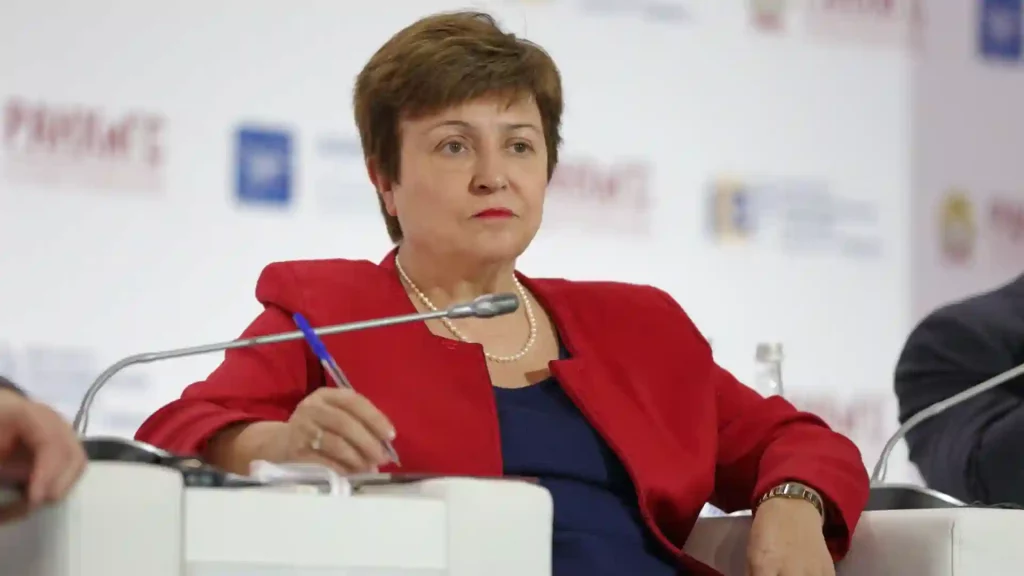IMF also predicted that Eurozone growth will fall to 0.5 percent in 2023 as high energy prices affect output, with important economies like Italy and Germany entering a recession
International Monetary Fund (IMF) Chief Kristalina Georgieva warns of a tougher 2023 for most of the global economy as the major powers see slowing growth. The United States, China, and European Union see a sluggish economic recovery in 2023 putting the world economy in a tough position. Higher interest rates, inflation, the Russia-Ukraine war, and the sudden rise in Covid cases have added weight to the situation. “We expect one-third of the world economy to be in recession,” says Kristalina Georgieva.
Global Economic Growth Outlook 2023
The remarks of the International Monetary Fund chief come after the organization in October cut its global growth forecast percentage to 2.7%, down from the 2.9% forecast in July. “In short, the worst is yet to come, and for many people, 2023 will feel like a recession,” warned IMF chief economist Pierre-Olivier Gourinchas in October. IMF also predicted that Eurozone growth will fall to 0.5 percent in 2023 as high energy prices affect output, with important economies like Italy and Germany entering a recession.
Gourinchas said geopolitical shifts in the continent’s energy supplies will be “broad and permanent,” maintaining prices high for a considerable amount of time. The financial agency of the United States has also stated that the future of the world economy rests on the regulation of monetary policy, the ongoing war, and the possibility of pandemic-induced supply disruptions. The economic future is subjected to a balancing act by central banks to fight inflation without overtightening, which could push the global economy into a recession and cause disturbances to financial markets and cause troubles for developing countries. Regardless of possible economic difficulties, the financial watchdogs would keep their primary focus on bringing inflation under control.
Struggling Economies
Since IMF reduced the global economic outlook in 2023, China has reduced its zero-Covid policy, reopening its economy even when the infections spread across the country. However, the IMF chief stated that China, the world’s second-largest economy, is likely to grow at or below global growth for the first time in 40 years as COVID-19 cases swell following the undoing of its strict zero-COVID policy.
“That has never happened before. And looking into next year, for three, four, five, six months the relaxation of COVID restrictions will mean bushfire COVID cases throughout China,” says Georgieva. IMF also stated that it expects China’s economy to recover or improve by the end of the year but concerns regarding its longer-term course can’t be kept aside. “For the next couple of months, it would be tough for China, and the impact on Chinese growth would be negative, the impact on the region will be negative, the impact on global growth will be negative,” says Kristalina Georgieva
China’s economic instabilities cause widespread concerns among other Asian economies as the country used to deliver around 40 percent of the global growth during pre-pandemic times. The European Union, on the other hand, is concerned with the Russia-Ukraine War causing a recession in other countries with the energy crisis adding weightage to life and economy equally in Europe.
The United States, on the other hand, has shown some strong resilience to the surrounding economic chaos happening worldwide. IMF says that this resilience could help the nation avoid contraction this year. “The US is most resilient. The US may avoid recession”. “We see the labor market remaining quite strong. This is, however, a mixed blessing because if the labor market is very strong, the Fed may have to keep interest rates tighter for longer to bring inflation down,” said Kristalina Georgieva
